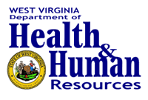Travel Update -- Middle Eastern Respiratory Syndrome Coronavirus (MERS-CoV)
While the information contained in this news article was current and accurate when we posted it, it may not necessarily represent current WVOEMS policy or procedure. If you have any questions, please contact our office at 304-558-3956.
Posted: Friday, June 26, 2015 10:05 AM

Health Advisory
#100
Travel Update -- Middle Eastern Respiratory Syndrome Coronavirus (MERS-CoV)
| TO: | West Virginia Healthcare Providers, Hospitals and other Healthcare Facilities |
| FROM: | Rahul Gupta, MD, MPH, FACP, Commissioner for Public Health and State Health Officer, WVDHHR, Bureau for Public Health |
| Date: | 06-26-2015 |
LOCAL HEALTH DEPARTMENTS: PLEASE DISTRIBUTE TO
COMMUNITY HEALTH PROVIDERS, HOSPITAL-BASED PHYSICIANS, INFECTION
CONTROL PREVENTIONISTS, LABORATORY DIRECTORS, AND OTHER APPLICABLE
PARTNERS
OTHER RECIPIENTS: PLEASE DISTRIBUTE TO
ASSOCIATION MEMBERS, STAFF, ETC.
As of June 24, the World Health Organization is reporting 179 cases of MERS-CoV, including 27 deaths from a large outbreak in Korea and China. Persons must meet one of the following criteria (A OR B OR C) to be considered for testing for MERS-CoV:
- Fever AND pneumonia or acute respiratory distress syndrome
(based on clinical or radiologic evidence) AND one of the
following:
- A history of travel from countries in or near the Arabian Peninsula within 14 days before symptom onset, OR close contact with a symptomatic traveler who developed fever and acute respiratory illness (not necessarily pneumonia) within 14 days after traveling from countries in or near the Arabian Peninsula, OR
- A history of being in a healthcare facility (as a patient, worker, or visitor) in the Republic of Korea within 14 days before symptom onset, OR
- A member of a cluster of patients with severe acute respiratory illness (e.g., fever and pneumonia requiring hospitalization) of unknown etiology in which MERS-CoV is being evaluated, in consultation with state and local health departments in the US,
- Fever AND symptoms of respiratory illness (not necessarily pneumonia; e.g., cough, shortness of breath) AND a history of being in a healthcare facility (as a patient, worker, or visitor) within 14 days before symptom onset in a country or territory in or near the Arabian Peninsula in which recent healthcare-associated cases of MERS have been identified,
- Fever OR symptoms of respiratory illness (not necessarily pneumonia; e.g., cough, shortness of breath) AND close contact with a confirmed MERS case while the case was ill.
Countries in the Arabian Peninsula and neighboring countries include: Bahrain; Iraq; Iran; Israel, the West Bank, and Gaza; Jordan; Kuwait; Lebanon; Oman; Qatar; Saudi Arabia; Syria; the United Arab Emirates; and Yemen. Close contact is defined as: being within approximately 6 feet (2 meters) or within the room or care area for a prolonged period of time (e.g., healthcare personnel, household members) while not wearing recommended personal protective equipment; or b) having direct contact with infectious secretions (e.g., being coughed on) while not wearing recommended personal protective equipment.
Patients meeting these criteria should be placed in standard, contact, and airborne precautions while the attending physician is working through the differential diagnosis. Testing for respiratory viruses using PCR technology can be helpful in differentiating MERS-CoV from more common circulating viruses; however only obtain a nasopharyngeal swab for testing while using a fit-tested N95 mask, gloves, gown and eye protection in a negative pressure room.
Providers should notify the infection preventionist and local health department immediately if they are evaluating a person meeting the case definition for MERS-CoV. Additionally, please notify the Division of Infectious Disease Epidemiology (DIDE) at (800)-423-1271, extension 1 or (304) 925-9946. Testing for MERS-CoV is available at the Office of Laboratory Services by consultation with DIDE. See http://www.dhhr.wv.gov/oeps/disease/atoz/pages/mers.aspx for more information on MERS-CoV.
This message was directly distributed by the West Virginia Bureau for Public Health to local health departments and professional associations. Receiving entities are responsible for further disseminating the information as appropriate to the target audience.
Categories of Health Alert
messages:
Health Alert: Conveys the highest level of
importance. Warrants immediate action or attention.
Health Advisory: Provides important information
for a specific incident or situation. May not require immediate
action.
Health Update: Provides updated information
regarding an incident or situation. Unlikely to require immediate
action.
West Virginia Health Advisory Number WV0100-06-26-2015
